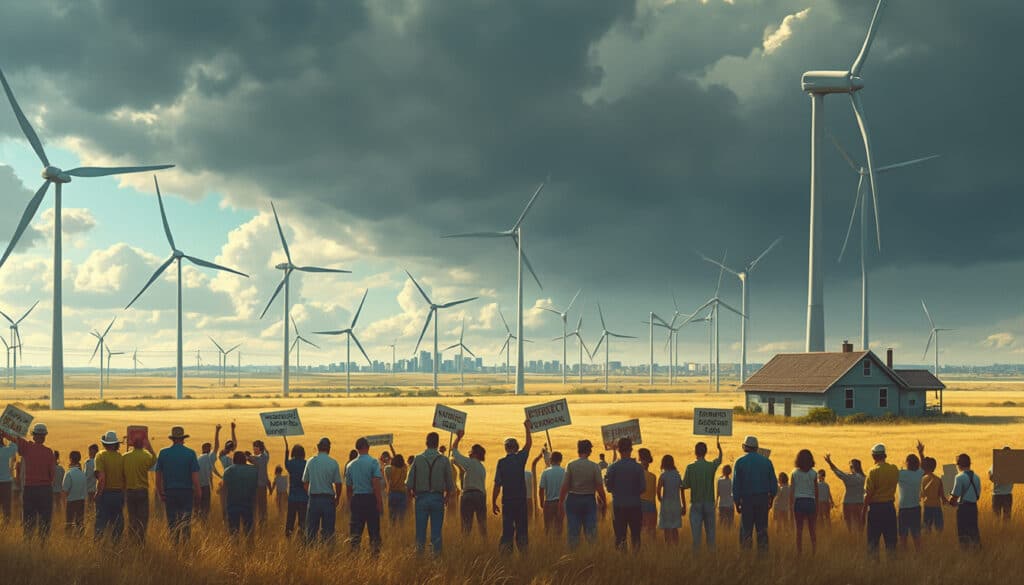In the state of Oklahoma, a vigorous movement is emerging to ban new renewable energy projects. While green energy is experiencing promising growth, activism against solar and wind energy is gaining momentum, fueled by environmental and economic concerns. Ironically, this state, rich in wind and solar potential, is seeing a surge in calls for moratoriums and restrictions. This dynamic reflects rising tensions around energy transition, with influential players from the oil industry in the background and an increasingly polarized public debate. Local communities are expressing their concerns and demands, highlighting a growing complexity in the adoption of new energy technologies.
In the United States, a nascent and concerted movement is emerging to make Oklahoma the first state to ban new renewable energy projects. Although this state is the third-largest generator of wind energy in the country and has a growing solar sector, the anti-renewable movement is gaining traction. Opposition to energy transition projects is fueled by concerns about environmental impacts and the unfulfilled promise of job creation. Paradoxically, despite the state government’s adoption of green technologies as job generators, voices are rising to end this use, favoring the traditional oil and gas sector. The debate is exacerbated by political tensions and tribal sovereignty issues.

The current context of Oklahoma regarding renewable energy
As Oklahoma seems to be fertile ground for the rise of renewable energies, protest movements are strengthening. Despite the fact that the state is the third largest generator of wind energy in the country, with a rapidly expanding solar sector, support for these green technologies is not universal. Anxiety is growing among some communities, particularly after the passage of the Inflation Reduction Act in 2022. For many residents, this transition is perceived as more of a threat than an opportunity. Resistance is intensified as massive meetings have taken place, one of which filled the Oklahoma City Capitol as people called for a ban on new wind and solar projects.
The political stakes behind this resistance
In Oklahoma, the political landscape is not in favor of an immediate ban; however, the political winds are blowing unexpectedly. The state’s Republican governor, Kevin Stitt, is known for advocating the development of renewable energies, seeing them as true job creators. But with figures like Attorney General Gentner Drummond calling for a halt to any collaboration with partners like Denmark on wind energy, these tensions are exacerbated. The local political elite is divided, with some seeking to galvanize opposition for fear that these efforts are merely a ruse to diminish the dominance of oil and gas.
The perceived economic and environmental impacts
Critics also base their arguments on economic and environmental grievances. Many activists question the economic impact of these projects, arguing that the promised jobs do not materialize as expected, making their presence less attractive for local communities. From an environmental perspective, concerns revolve around the implications for local species and the use of certain chemicals in the manufacture of solar panels. Tribal concerns are also at the heart of this debate, particularly due to the implications of tribal sovereignty on development projects, as underscored by a recent court ruling requiring the removal of wind turbines on the Osage reservation.
Articles similaires
Thank you!
We will contact you soon.














